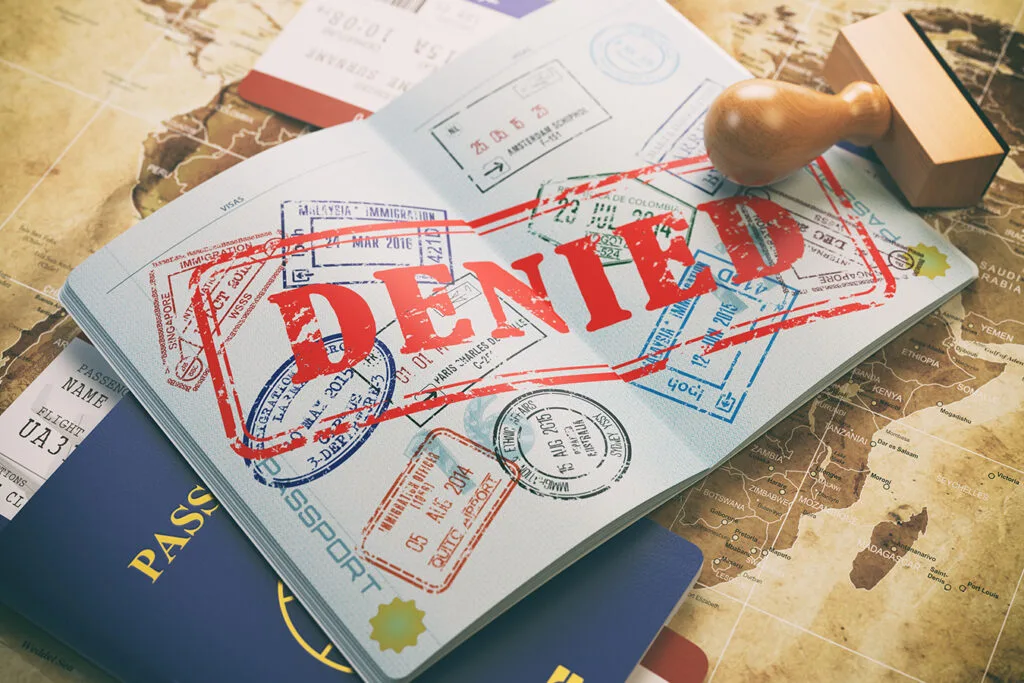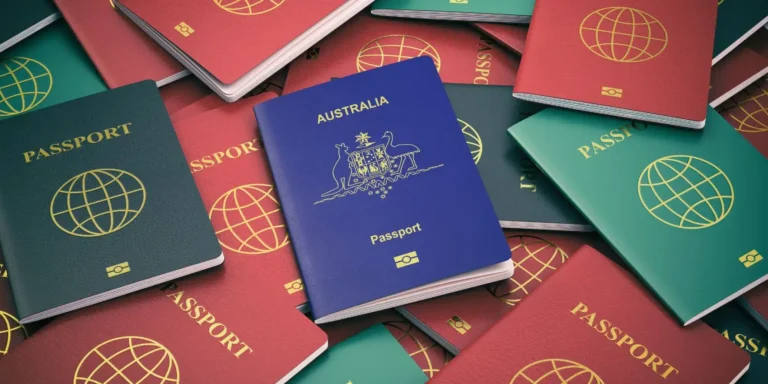Getting a visa refusal can be disappointing, especially for applicants from Bangladesh who hope to travel, study, work, or live abroad. Every visa application is carefully reviewed, but there are some common reasons why Bangladeshi applicants often face denials. Here are the top ten reasons for visa refusals for Bangladeshi citizens:

1. Missing or Incorrect Documents
One of the main reasons for visa refusals is incomplete or incorrect paperwork. Embassies need specific documents, depending on the visa type. If any paperwork is missing or contains errors, like inconsistencies between forms and documents, it can result in an immediate denial. Double-checking all paperwork before submitting is essential to avoid this issue.
2. Financial Instability
Financial stability is a crucial part of most visa applications, especially for tourist and student visas. Applicants need to prove they have enough funds to support themselves while abroad, usually with bank statements, tax documents, or sponsorship letters. Insufficient or unstable financial records can lead to denial, as consulates want to ensure applicants won’t struggle financially in their country. When applying for UK Visa from Bangladesh, many applicants write wrong information about their yearly income.
3. Weak Ties to Bangladesh
Visa officers look for strong ties to the applicant’s home country, such as family, a job, or property, to be confident that the applicant plans to return. If an applicant does not show enough connections to Bangladesh, it could suggest that they might overstay in the destination country, leading to a possible refusal. Family and social ties are important when applying for a Canada Visa from Bangladesh.
4. Problematic Travel History
Visa authorities review an applicant’s past travel records carefully. Frequent or unexplained trips, especially to certain high-risk countries, can raise concerns. A history of overstaying visas, deportations, or other travel issues can negatively impact future applications, sometimes leading to a denial.
5. Unclear Travel Purpose
It’s important for applicants to clearly explain why they want to travel. If their reasons are vague or inconsistent, it can raise suspicions. For instance, if someone claims to be visiting as a tourist but submits documents that suggest they’re looking for work, it could lead to a denial.
6. Questionable Sponsorship
Many Bangladeshi applicants rely on sponsorships, especially for family, education, or work visas. If the sponsor’s financial stability, relationship, or intentions seem unclear or unreliable, this could lead to a refusal. Additionally, sponsors who have failed to fulfill obligations in the past can also affect the outcome of a visa application.
7. Poor Interview Preparation
In some cases, a visa interview is required where applicants are asked about their travel plans, finances, and background. An unprepared applicant or inconsistent answers can cause the visa officer to doubt the applicant’s intentions, leading to denial. Being honest, clear, and prepared for the interview is key.
8. Insufficient Travel Insurance
Many countries, especially in Europe, require specific levels of travel insurance for visa approval. If an applicant’s insurance policy doesn’t meet the required level or duration, it could lead to refusal. Having appropriate coverage, especially for countries with high healthcare costs, is crucial for approval.
9. Health Concerns
Certain countries, like the United States and Australia, have strict health standards for visa applicants. Health issues that might risk public health or lead to high medical expenses could result in a denial. Common health red flags include untreated diseases like tuberculosis or HIV, which some countries view as significant concerns.
10. Criminal Record
A criminal record, even for minor offenses, can impact visa approval. Many countries perform background checks, and a criminal history can lead to visa refusal if the country believes the applicant may pose a risk to their society. Even minor criminal activities can affect the chances of getting a visa.
Most visa refusals can be avoided by closely following the application guidelines and ensuring that all information is complete, accurate, and consistent. Bangladeshi applicants should focus on being honest and thorough in their paperwork and demonstrating their commitment to following visa conditions. By understanding these common mistakes, applicants can improve their chances of getting their visas approved and achieving their goals abroad.





